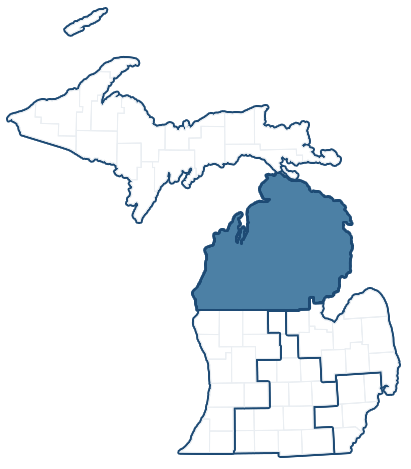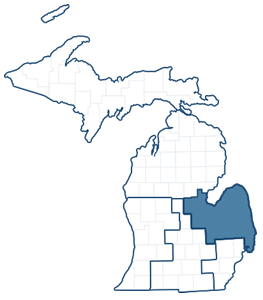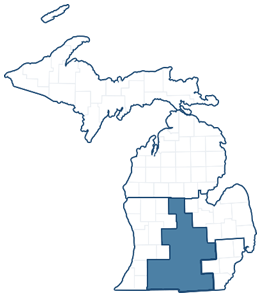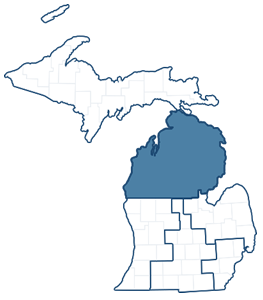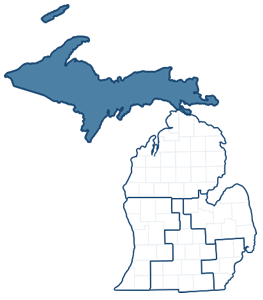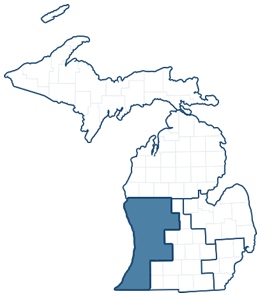Sen. Stabenow Joins Great Lakes, Conservation Leaders at Cabela’s in Grandville to Call for More Action to Stop Asian Carp
Thursday, January 23, 2014U.S. Senator Debbie Stabenow today joined Great Lakes and conservation leaders at Cabela's in Grandville to call for more action to stop Asian carp. These invasive fish pose a serious threat to the Great Lakes ecosystem and the region's $16 billion boating and $7 billion fishing industries.
Stabenow, author of the bipartisan Stop Invasive Species Act, and Great Lakes advocates have said that a recent Army Corps of Engineers report on proposals to stop Asian carp is incomplete and the Corps must continue to work with Congress to more fully develop its proposals so work on projects to stop Asian carp can begin. The Corps is now asking for public comment on its report, and Senator Stabenow is encouraging Michigan residents to weigh-in and make their voices heard.
Senator Stabenow said: "Time is running out to stop Asian carp from devastating our Great Lakes and the hundreds of thousands of jobs that depend on them. While the Army Corps' report is a step in the right direction, it is incomplete. The Army Corps needs to fully develop an action plan so work can begin now. We have an opportunity to make sure Michigan's voice is heard in this debate, and I encourage every family to speak up."
Erin McDonough, Executive Director of the Michigan United Conservation Clubs said: "Protecting the Great Lakes from Asian carp is one of the most important things we can do as Michiganders. Our Great Lakes, its fisheries and the associated economies are dependent on us winning this war. We appreciate Senator Stabenow's focus on this issue because in this case an ounce of prevention really is worth a pound of cure."
Rachel Hood, Executive Director of the West Michigan Environmental Action Council said: "Invasive species like Asian carp are a major threat to the Great Lakes and Grand River Watershed. I applaud Sen. Stabenow for continuing to push for an action plan that will keep Asian carp from harming our ecosystem and West Michigan's economy."
Dennis Eade, Executive Director of the Michigan Steelhead and Salmon Fishermen's Association said: "If Asian carp establish populations in the Great Lakes, it will have a devastating impact on native fish populations throughout the State. Every inland lake connected by a river or stream to the Great Lakes would be at risk of being overrun, putting our sport fishery industry at serious risk because of the readily available food source for these ferocious feeders. The Army Corps needs to send Congress a detailed plan to permanently separate the Chicago Area Waterway System from the Great Lakes before it is too late."
On Tuesday, Senator Stabenow participated in an Army Corps public meeting in Ann Arbor. The Army Corps is hosting a second meeting in Traverse City on Thursday, January 23 at 4:00 P.M. For more information on the report, details regarding public meetings, and information on submitting public comment, please visit: http://glmris.anl.gov/glmris-report/
Sen. Stabenow authored the bipartisan Stop Invasive Species Act with Congressman Dave Camp, which passed in 2012, to require the Army Corps to expedite the completion of its report on possible strategies to permanently prevent Asian carp and other invasive species from entering the Great Lakes. The report (known as the Great Lakes and Mississippi River Interbasin Study or GLMRIS) had originally been scheduled to be completed in late 2015 or early 2016, but the Stop Invasive Species Act required the Corps' to give Congress fully completed proposals for ways to stop invasive species, including Asian carp, at all known Great Lakes entry points by January 2014.
Despite the law requiring the Army Corps to submit a complete report that includes fully developed project plans so work could begin on them, the Army Corps' report only provided conceptual-level details.
The Army Corps' report comes in the wake of alarming incidents that illustrate how close Asian carp are to the Great Lakes and how vulnerable the Lakes are to invasion and ecological destruction. In 2013, Asian carp eDNA was discovered in the Wisconsin waters of Lake Michigan and a live carp was caught in Flatfoot Lake near Chicago, located next to the Calumet River, which feeds directly into Lake Michigan. Last month a joint Army Corps and U.S. Fish and Wildlife Service report showed that fish were moving through the electronic barrier in the Chicago Waterway meant to serve as Lake Michigan's last line of defense against the carp. In 2012, the electronic barriers temporarily malfunctioned, leaving the Great Lakes unprotected from infestation.
Next Article






